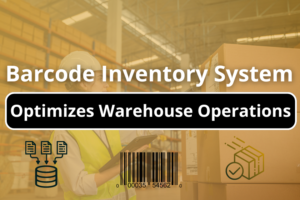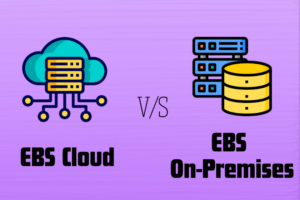In the ever-evolving landscape of manufacturing and supply chain operations, technology has played a pivotal role in reshaping operations. While online applications like SAP S/4 HANA and Oracle Fusion Cloud have been instrumental, their exclusive reliance on constant connectivity poses challenges for manufacturers.
In this blog, we will delve into the strategic shift that manufacturers are embracing—incorporating offline functionality into their supply chain operations. Focusing on key areas such as manufacturing, inventory management, cycle counting, shipping, picking, and maintenance, this article explores the compelling reasons behind this shift and real-world applications, highlighting the transformative impact of offline capabilities.

Overview
Easing the Burden on Production Servers
Online-only applications can put significant stress on production servers. During peak operational hours, this can lead to slowed response times and, in worst-case scenarios, server downtimes. By incorporating offline functionalities, companies can alleviate this stress. Supply chain Operations can continue smoothly without constant server communication, ensuring that key processes are not bottlenecked by IT infrastructure limitations.
Our Customer’s Success Story
One of our customers is world top 3 companies by valuation and due to its sheer number of users across the globe, someone was running a long running jobs that blocked materials tables in Oracle EBS so no other transactions can be done. Fortunately, this customer was using Propel Apps’s robust offline platform. When Oracle EBS was experiencing delays, API calls would time out and synced to EBS at a later point in time without the user doing any specific action. While users depending solely on Oracle EBS were suffering from system response, Propel Apps’ users were achieving 100% productivity and smooth operations with first of its kind offline-first architecture.
Overcoming Connectivity Challenges
In many industrial environments, consistent connectivity is a luxury. Material handlers working in areas with poor connectivity, such as ports, tunnels, and shipping docks, often face productivity setbacks. Offline capabilities allow these workers to continue their tasks unhindered, synchronizing data once they are back in a connected environment. This approach ensures that productivity is not compromised due to connectivity issues.
Real-world Applications and Benefits
Case Study 1: The Food Packaging Industry
One of Propel Apps’ customers is Anchor pac, which manufactures food containers. In their manufacturing plant, there are many dead spots and material handlers were frustrated with them as they are not able to connect to Oracle WMS systems when needed using Oracle MSCA barcode scanning application. Material handlers often cited poor connectivity as a reason for not scanning items. With a robust offline first platform for barcode scanning, Anchor was able to overcome all connectivity issues for their warehouse management and manufacturing.
By implementing an offline scanning system, the company eliminated this excuse, leading to more accurate and timely data capture, enhancing overall efficiency. Now this customer noticed 100% of all transactions are recorded in Oracle EBS WMS system.
Case Study 2: Consumer Goods and Maintenance Challenges
Technicians in a consumer goods company frequently require scanning capabilities in challenging environments like basements or skyscrapers, where connectivity is unreliable. Offline functionality allowed them to perform their tasks without interruption, ensuring that maintenance and inventory management were carried out efficiently.
Top 6 Advantages of Offline Functionality in Supply Chain Operations
Offline capabilities offer several advantages over online-only systems:
1. Continued Productivity in Connectivity-Limited Areas
By allowing data to be collected and stored locally, operations can continue uninterrupted in areas with poor or no connectivity.
2. Reduced Server Load
Offline functionalities can lead to less frequent data transmissions, thereby reducing the load on central servers and minimizing the risk of system slowdowns or crashes.
3. Enhanced Data Accuracy
With the ability to capture data on the spot, regardless of connectivity, the chances of data entry errors or omissions are significantly reduced.
4. Increased Flexibility and Resilience
Offline functionality makes the supply chain operations more resilient to connectivity issues, ensuring that critical operations are not halted due to technical problems.
5. Improved Employee Morale and Productivity
When workers are equipped to perform their tasks without technological hindrances, it leads to increased job satisfaction and productivity.
6. Improved User Experience
Offline applications are not just for Oracle or SAP S/4 HANA customers with connectivity issues. As all the data is loaded into Mobile Database and readily available for users, you can expect smooth user experience. Spinning wheels are a thing of the past.
Conclusion
The incorporation of offline functionality into supply chain operations is not merely a trend but a strategic necessity in the contemporary manufacturing landscape. By alleviating the burden on production servers, overcoming connectivity challenges, and enhancing real-world efficiency, manufacturers are redefining the paradigm of operational resilience. This move not only addresses the limitations of online-only ERP systems like SAP S/4 HANA and Oracle Fusion Cloud but also lays the groundwork for a more robust, flexible, and efficient supply chain ecosystem. As technology evolves, the delicate balance between online and offline capabilities will remain a critical factor in determining the success of manufacturing and supply chain operations in the future.
Propel Apps emerges as a leader in empowering manufacturing and supply chain operations. Positioned at the forefront of technology, Propel Apps not only tackles present challenges but also lays the foundation for a more resilient, efficient, and future-ready supply chain. As manufacturers navigate modern complexities, it serves as a strategic ally, ushering in a balanced and adaptable integration of online and offline capabilities. For a transformative leap in supply chain operations, get in touch today!




